Bikerafting The Sacred Headwaters
By the numbers:
• Distance traveled: 400km (Roughly 150km of bike packing, 250km of packrafting)
• Days in the Wilderness: 9
• Number of aggressive Grizzly Bear encounters: 1
• Bikes used: Ibis Tranny29 x 2
Look at a map of northwestern BC and it’s both shocking and relieving to see the lack of roads. At the heart of this vast area is a place known as the Sacred Headwaters – one of the only pristine wildernesses of substantial size left in North America. It serves as the headwaters of B.C.’s three great salmon rivers and supports an ecosystem so rich in flora and fauna that it has been coined the Serengeti of the North. Part and parcel of the allure of the Sacred Headwaters is that it is nearly impossible to access without a bush plane. Nearly.
Fortunately, my adventure companion and fellow filmmaker, Colin Arisman found the only route inside – a roughly 100-mile dirt road that was built in the 1970’s as a railroad grade. The project was abandoned before completion and what remains is an unmaintained railroad grade, resulting in a perfect gravel grind that would take us directly to the heart of the Sacred Headwaters. It would serve as the first leg of our journey.
With our Tranny’s packed and fully loaded with nine days worth of food, packrafts, camping gear, and repair kits for all of the above, our last interaction with civilization was with the owner of a nearby lodge. His message to us was direct – he thought we were insane. It was big country up there and if even the smallest thing went awry, it would become a life-threatening emergency very quickly.
“It looks nice now, but things can change very quickly up there,” he warned. We didn’t need his warnings to know this, but it was a sobering note to leave on.
As it turns out, the abandoned railroad grade was in great shape and for the most of two days we had what felt like a gravel highway to ourselves. At the end of day two we turned off the smooth gravel and onto an old canoe portage. Despite the heavily loaded bikes, it yielded several fun singletrack descents. And, a few muddy bogs to remind us where we were.
By evening we had reached the banks of the Spatsizi River, where our journey would turn north and start its second phase – a six-day packraft covering almost 150 miles of river wilderness. We broke down the Tranny’s – front and rear triangle separated, both wheels off, mindful that we would be needing them in working order again before the trip was over – and strapped them to the newly inflated rafts.
Floating was a markedly different pace than biking as we watched the landscape drift by from our boats. At the entrance of any large tributary, we stopped to fish and to little surprise found that the trout had not seen many flies pass overhead.
During our first three days, the Spatsizi had grown from a small brook that was barely passable to a large, rumbling river, and soon it converged with the mighty Stikine, one of B.C.’s largest rivers. From the Stikine confluence we turned west, and for first the first time on the trip we were headed back towards a road and not away from one. Fast moving and large, this new water brought new challenges. Class 3 was the largest water we encountered, but it was plenty frightening, as flipping meant raking the carbon bikes strapped to the hood of the raft across every rock it crossed, not to mention exposing yourself to injury that would require a helicopter airlift.
Along the way we crossed paths with over twenty black bears, floated by a very curious moose and her calf, and had one very harrowing encounter with a grizzly bear that decided we looked like a good option for dinner and charged us from the opposite back. Fortunately, we were able to get in the fast moving water first, but there was a moment when we were not sure who was faster in the water— a Grizzly or a packraft. Had we been on land, it would have been no contest. After six days on the river we hit an old railroad trestle—a lower section of the same railroad grade we began on – where we rebuilt the bikes for the last 35 miles of gravel. After six days of paddling, we felt weightless to be back on the bikes.
We awoke the next day to a rumble of tractor trailers – a stark contrast to the scenery of our past nine days. The trucks were heading to Red Chris mine, only a few miles from where our journey had begun and concluded. It was a completely unplanned, but the irony was not lost on us. If the Sacred Headwaters are known for one thing in addition to its wilderness, it’s the resources that sit underneath it. Rich in natural gas, coal, and numerous precious metals the area has been subject to intense conflict over whether mining should take place. It is home to one of the few successful campaigns by First Nations’ communities to block a mining project in their sacred land – a Shell Oil hydrofracking project. Yet, despite similar blockades and protests, the Red Chris mine won approval. So on our last day in the north country, we chartered a sea plane to see this controversial site for ourselves, which despite using state-of-the-art techniques, has already begun to leak arsenic into a nearby lake after only two years in operation.
We left the Sacred Headwaters with mixed emotions. Having seen and traversed wilderness completely untouched my humankind only to realize that its status as such might be shortly lived.
A short film on the adventure will be out next fall.
Words by Tyler Wilkinson-Ray.
Photos by Colin Arisman and Tyler Wilkinson-Ray.
Aerials by Luke Kantola.
MENTIONS: @ibiscycles
Author Info:
Must Read This Week
Sign Up for the Pinkbike Newsletter - All the Biggest, Most Interesting Stories in your Inbox
PB Newsletter Signup
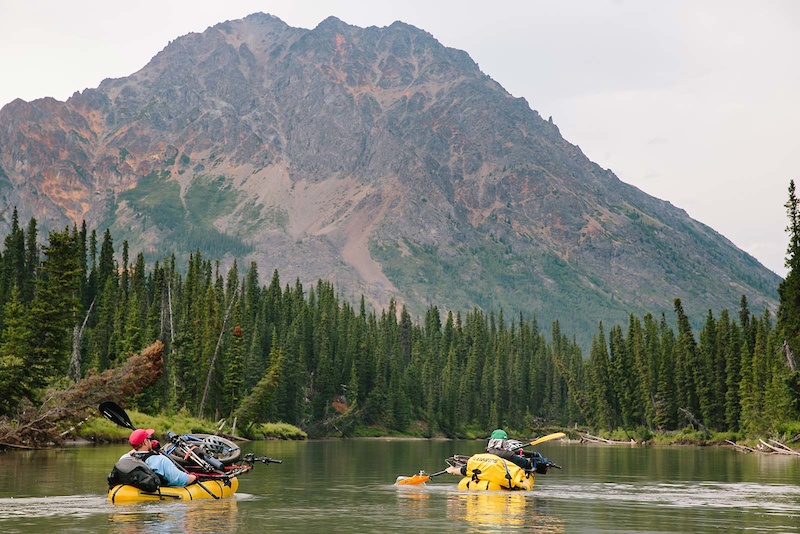
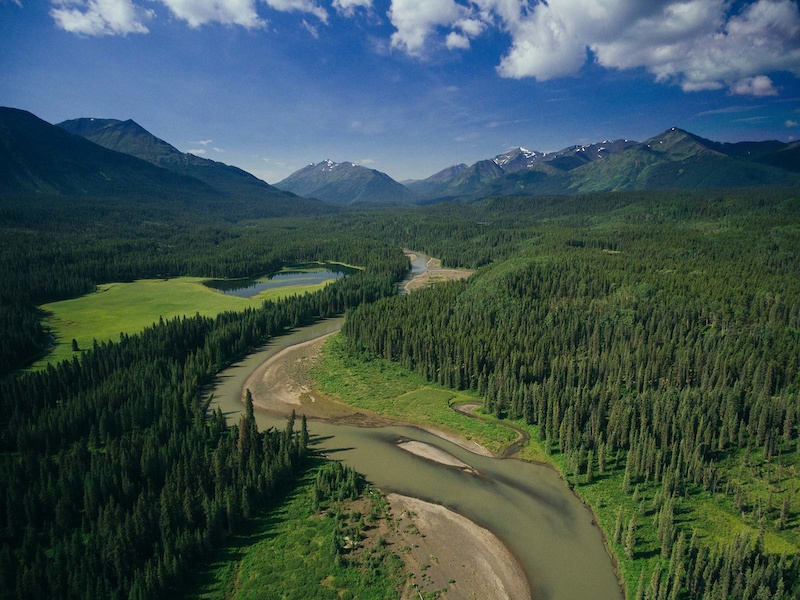
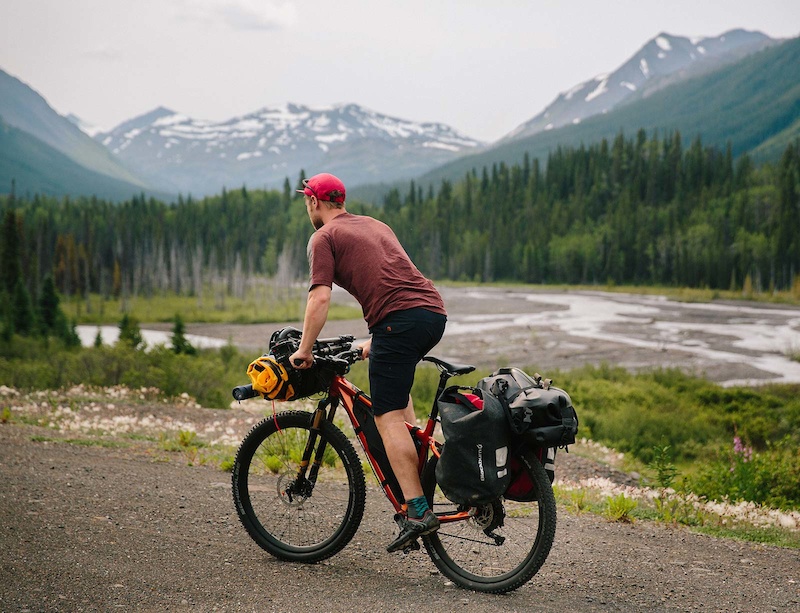
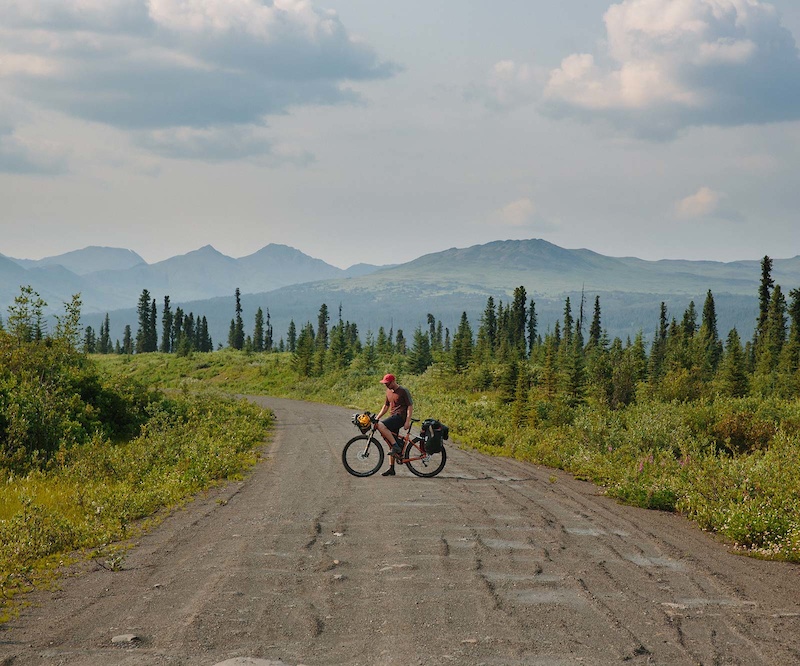
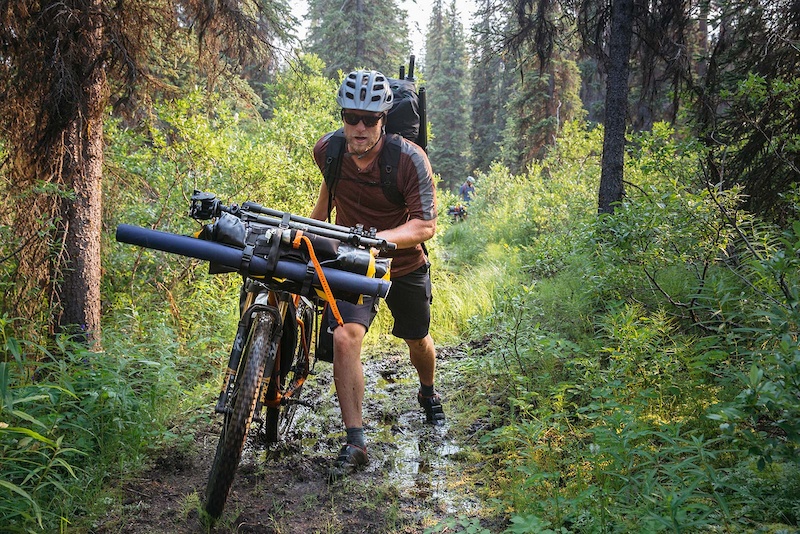

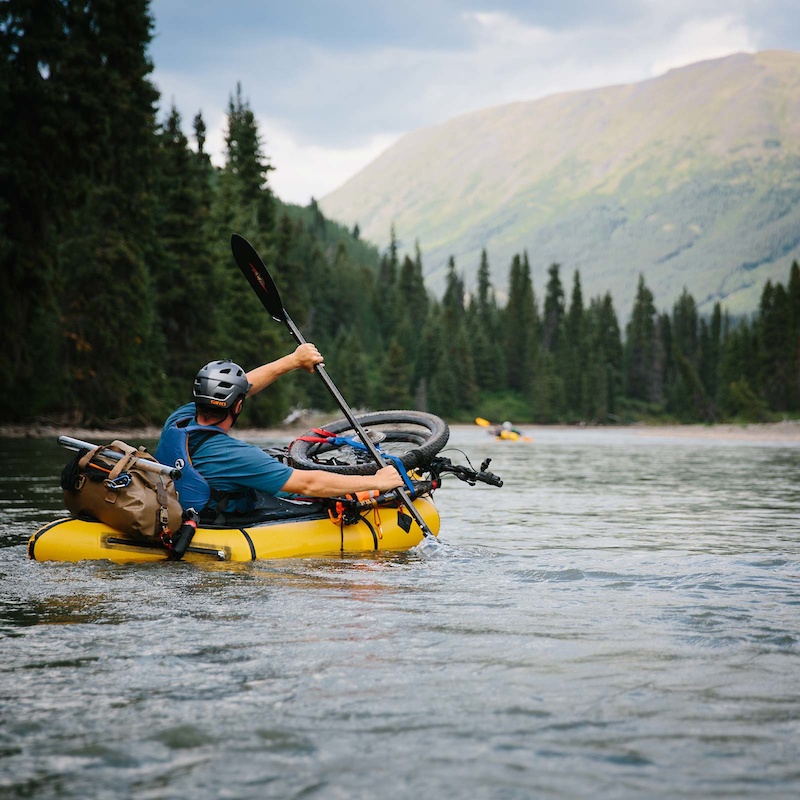
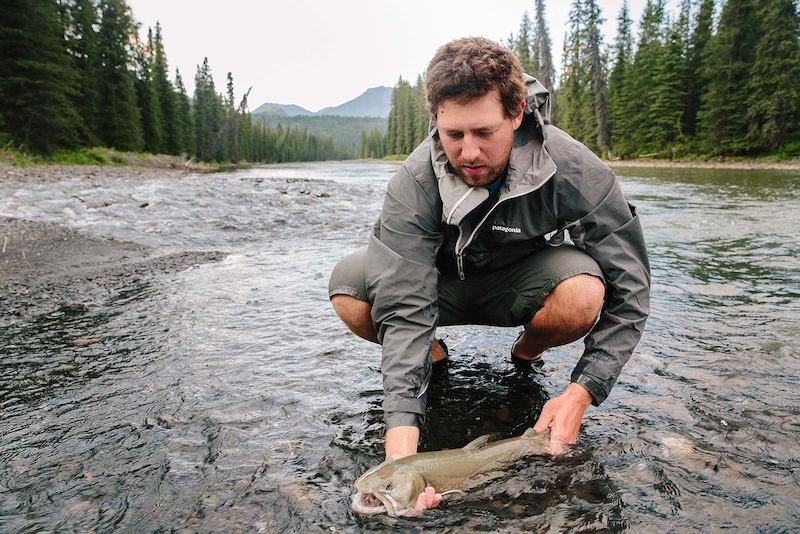
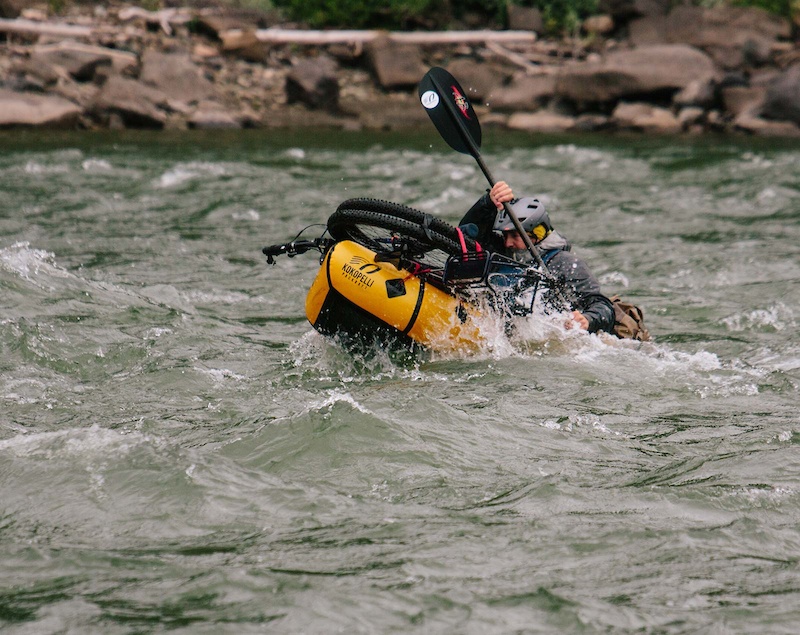
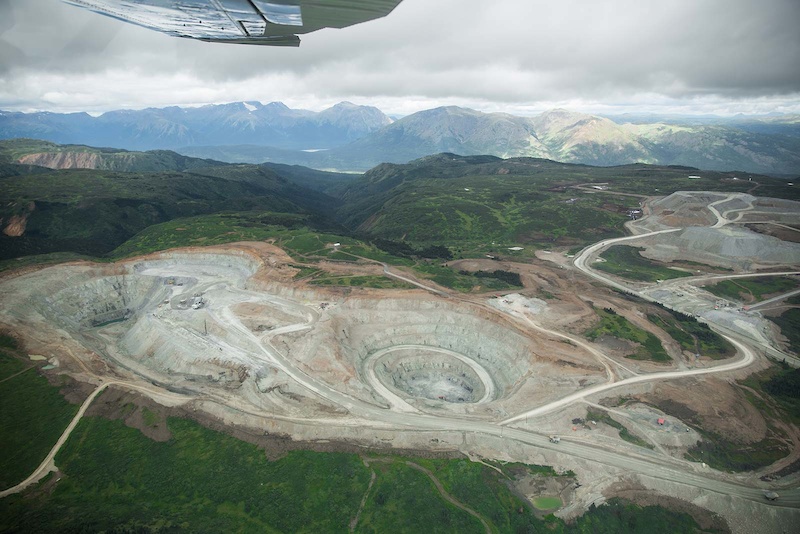

Sure your bike trip was "eco-friendly" but you undoubtedly flew up to Dease Lake from Vancouver on a commercial air line burning hundreds of gallons of fossil fuel, not to mention the copper, titanium, aluminum, iron, molybdenum, tungsten, nickel, tin, gold and silver that make up the components of the plane. And then the trip was documented with cameras and gadgets packed full of rare earth elements like neodymium and niobium and battery components like lithium, graphite and cobalt - a lot of which are mined by forced or child labour in Central Africa or China - yet there is no mention of any of those mining activities? If you can't see those mines, its okay right?
Please don't have a "look at the mess they are making" attitude when almost everything you use, everyday, is a product of a mine. All of these things have to come from somewhere. If you can't grow it, you have to mine it and we humans consume a lot of stuff.
I have no problem with people being against the mining industry, but please don't have your opinion purely based on a "not in my back yard" perspective. Sure, it doesn't look pretty, but its a necessary evil of our modern society. No mine is perfect with respect to the environment, and never will be, but fortunately enough in Canada we have some of the best environmental legislation in the world protecting our land and this ensures only the most competent people are developing our resources. If you don't believe me just google mining in China.
Now down vote me all to hell I don't care, but as a geologist who is employed in the mining industry, all I ask is that you please take a minute to think about the products and services you use every day before taking a stance on mining.
I have no idea the real number in terms of percent of operators that act this way, but it's significant. The point is NOT that they're bad people, but many are too willing to accept a certain level of bad for good. In Wyoming, go ahead and have at it. There's plenty of development and people and it's far far far from wilderness. I've sadly seen mule deer and pronghorn populations suffer from gas development, and it will not return for generations if ever. It sucks.
As far as mine reclamation goes, sure it happens, but I drive by abandon coal surface mines that are still open and not being reclaimed. It just doesn't happen right away. They will get real bad before they get better.
Get off YOUR high horse, and be willing to consider certain places off limits to exploitation. This mine is a perfect example that responsible in terms of mining is a way ditterent standard than zero impact. This mine makes it clear no impact mining is not possible. I feel strongly against this kind of development (such as the Pebble mine). I will fight tooth and nail for keeping Pebble from ever happening, and the fact that within 2 years arsenic shows up in a lake is inescapable. It's from the mine. It will happen anywhere mining activity is, and if you put a mine smack dab in a sensitive open wild land it will have a major impact period. This mine sucks, and over the coming decades the incidents will pile up. That's a fact you can't debate.
I do agree. Buy less stuff! Every time a Vancouverite complains about their unaffordable homes due to Chinese buying them all up please realize it is because you, 35million other Canadians and 350million americans buy a lot of shit that these people have 100's of millions of dollars. And so we rip out minerals and oil to send the minerals over by boat (oil) to be made into shit we don't need and then float it on back (more oil) so we can make 100$ an hour driving a truck, go to Cuba on vacation for 500$ and talk about how 'quaint' their lives are and how amazing it would be to live so simply. And then get drunk and fat, buy a 5000$quad a 25000$ boat etc. We are easily the most out of touch generation in the history of the world. And I am not saying I am any better. I commute by bike and try to not use my car as much as possible, plant a garden etc and I haven't purchased anythign resembling a 'new wardrobe' since I got school clothes in grade 4. I am just saying that we have to look at how we act and live if we want to continue to have a beautiful country. We have to produce things ourselves. We have to ensure our mining is more responsible and we should certainly respect the land of the people who are the first people to live here. No, we can't take down our cities and give them back the CN tower, Vancouver itself or anything like that. But how much of that mining revene goes to support education and health care for the people who pleaded to not ruin their land? In Saskathewan the government is short of funds because of oil and potash not being as profitable so the first program they cut was the northern teachers education fund which helps educate first nations to become teachers and live in their own communities to be a positive role model. What a f**king joke. But Trudeau has no trouble extending millions of dollars of EI to those rich families who were hit by the oil downturn. Yes, I feel for them being out ofwork, but there is a difference between the sympathy I feel for people with a grade 10 education who drive truck for 100-200K a year compared to a people whose land has been stolen and to whom we deny any chance of a decent education.
Canada may have better environmental laws about that stuff, I'm not familiar with it. But you should see some of the rape and pillage that the extraction industries do all over the US. It's not just China or Africa.
My main question to the authors would be "please provide evidence of the arsenic leak to the local lake" - I have goggled the crap out of the internet and see nothing relating to the Red Chris mine.
I think we can all agree though - consume less, recycle and make environmentally conscious decisions!
You have no credibility.
even the best run mines do alot of damage, but we need them. it's a bummer they have to be in such beautiful places.
As Tupac said: "You gotta make a change. Its time for us as a people to start making some changes, lets change the way we eat, lets change the way we live, and lets change the way we treat each other."
As for things getting political on Pinkbike...at least it's something worth reading and thinking about, rather than some dumb new product that's just going to further exploit both the consumer, the extractor and the earth. Of course we all need time off so that's ok too...
Planning a few overnighters down here in Tasmania, any hot tips or online resources you can recommend? What gps systems do you use? Preloaded .gpx tracks? Cheers
www.ncbi.nlm.nih.gov/pubmed/26903202
www.ncbi.nlm.nih.gov/pubmed/26038318
More importantly does it include an apology to the families who die?
I am going on your words here, but you have listed "estimated". Remember that the Van olympics which was a pretty straightforward job was millions of dollars over the esitmates. I am making the assumption that they did not assume they would be poisining the water table.
This guy has some great things to say on how we can move forward and heal the scars that the extractive industry we cant live without, leaves behind:
architectureau.com/articles/healing-wounded-landscapes
and these guys in the UK made a park out of an old coal mine:
www.washingtonpost.com/lifestyle/style/northumberlandia-lady-of-cramlington-rises-from-englands-hills/2012/11/22/36d62974-23a3-11e2-ac85-e669876c6a24_story.html